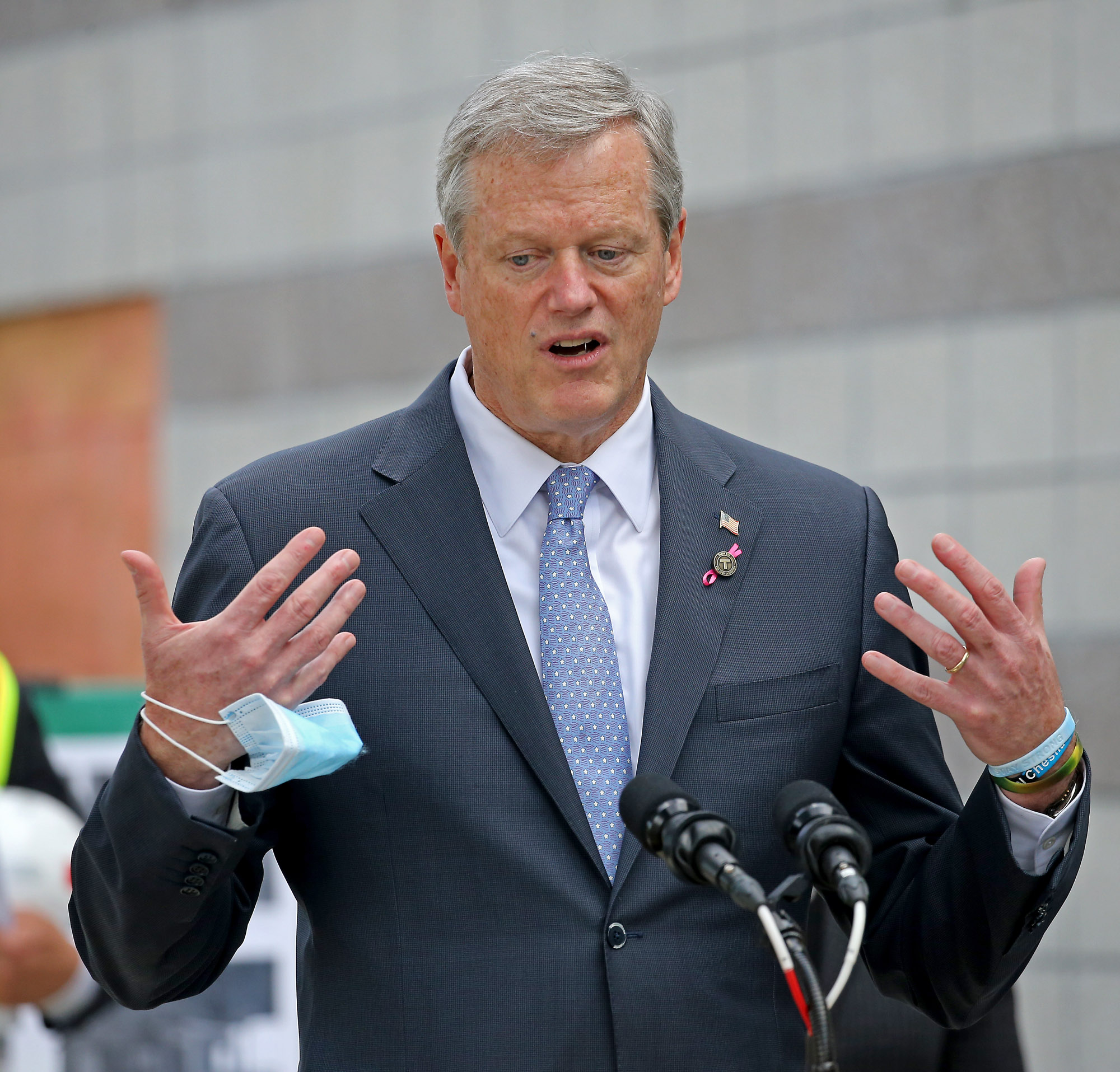Source – https://www.sentinelandenterprise.com/
Many parts of Massachusetts are moving into a new phase of reopening Monday even as coronavirus metrics hit numbers that haven’t been seen since the height of the pandemic — leading medical experts to question Gov. Charlie Baker’s decision to forge ahead.
“We need to stay where we are and watch things carefully and keep our guard up,” Boston University infectious diseases specialist Davidson Hamer said. “I can’t read his mind, but I just wonder if he’s under a lot of pressure from businesses.”
All but 29 of the Bay State’s 351 cities and towns are allowed to move forward with step two of the third phase of reopening on Monday, which allows indoor performance venues, roller rinks and fitting rooms to reopen, places such as gyms and museums to increase their capacity and outdoor gathering limits to bump up to 100.
At the same time, the state’s coronavirus reproduction rate has climbed to its highest rate since the end of March, weekly case totals rose throughout September and new daily cases crossed 700 twice in the past week — a number not seen since the height of the pandemic.
Twenty-three communities landed in the state’s red zone for being at a high virus risk last week as well, the highest since the state switched to the color-coded risk assessment system in August. The seven-day average positive test rate has also ticked up over 1% again, after hitting a low of 0.8%.
“We’re at a point where caution and weekly reassessment is needed and if we make a mistake and things get out of control, we’ll have to go back to more draconian measures,” Hamer said.
Baker has repeatedly defended his decision to expand indoor dining and this week to increase capacity at retail and other establishments even as cases have started to rise, noting the state’s positive test rate has tumbled from 10% to around 1% for the past couple of months.
Contact tracing, he said, shows “the biggest concern” is “informal, no-rules, no-guidance gatherings” and not work.
“Some people are going to say we’re going too fast and some people are going to say we’re going too slow,” Baker said. But “we rethink the reopening pretty much every day.”
Dr. Irwin Redlener, head of the National Center for Disaster Preparedness at Columbia University, said there’s no cut-and-dried answer for governors, who have to play “3D chess” managing the at-times competing pressures of public health, the economy and the desire to get kids back to school.
“These are no easy answers to come by,” he said.
Dr. Todd Ellerin, director of infectious diseases at South Shore Health, said the uptick here is predictable with students returning to classrooms at all levels. But cases nationally and here in Massachusetts are “obviously going in the wrong direction.”
“I can’t fault the governor for pressing forward, although I have to say, this is a very tough time to do it,” Ellerin said. “I would feel more comfortable if this were the spring going into summer.”
